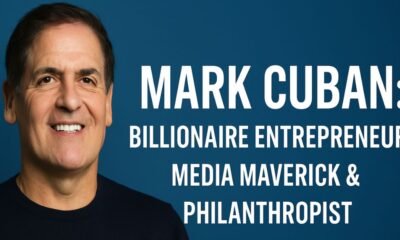Innovation
Meta Brings Ads to WhatsApp After a Decade of Ad-Free Messaging

A Transformative Shift for WhatsApp and the Future of Monetized Messaging
More than a decade after Facebook (now Meta) acquired WhatsApp for a staggering $19 billion, the world’s most popular messaging app is finally opening its doors to advertisements. This major move signals a monumental shift in how Meta envisions WhatsApp’s role in its broader ecosystem, from an ad-free refuge to a powerful commercial platform.
Ads Make Their Way Into the “Updates” Tab
Meta announced that businesses will now be able to run status ads within WhatsApp, appearing specifically in the “Updates” tab. These status ads work similarly to Instagram Stories, allowing advertisers to share time-sensitive content like images, text, or video that disappears after 24 hours.
These ads aren’t designed to interrupt users’ private chats. Instead, they’re confined to the Updates section to maintain user privacy and avoid disrupting personal conversations, according to Meta’s head of business messaging, Nikila Srinivasan. This measured rollout demonstrates Meta’s cautious strategy to balance user trust with monetization goals.
Channels Monetization: A New Revenue Stream
In addition to status ads, Meta is introducing new monetization options for WhatsApp Channels. Channels, launched in 2023, allow public figures, organizations, and brands to broadcast updates to followers.
Now, Meta will allow channel admins to promote their channels through paid search ads, boosting visibility in WhatsApp’s directory. Moreover, they can charge monthly subscription fees for access to exclusive content a model reminiscent of YouTube Memberships or Patreon.
While Meta won’t immediately take a cut from these subscriptions, the company plans to eventually claim 10% of the earnings. This signals a clear path toward turning WhatsApp into a revenue-generating machine without overwhelming users with intrusive ads. (bloomberg.com)
A Departure from WhatsApp’s Anti-Ad Roots
WhatsApp’s move into advertising marks a sharp departure from its founding principles. The app’s original creators, Jan Koum and Brian Acton, were staunch critics of digital advertising and surveillance-based monetization. Their idealistic stance on privacy and user experience was part of what made WhatsApp so appealing to millions globally.
Both Koum and Acton eventually left Meta, reportedly due to disagreements with the company’s leadership over plans to monetize the app through ads and other business-focused tools. Now, under Mark Zuckerberg’s leadership, the company is fully embracing WhatsApp as a potential pillar of its business model, particularly in messaging-based commerce.
Why Now? Timing and Market Potential
With over 3 billion monthly users, including more than 100 million in the United States, WhatsApp is one of the few Meta properties that hadn’t yet been fully monetized. According to Zuckerberg, messaging between brands and customers is the company’s next major growth frontier.
Until now, Meta allowed click-to-message ads on Facebook and Instagram that redirected users to WhatsApp chats with businesses. Now, the company is taking the next logical step: enabling businesses to connect with customers natively within WhatsApp itself.
Meta believes that lightweight targeting — using information like country, language, and device can enable relevant ads without compromising privacy. According to Srinivasan, personal chats and status updates remain end-to-end encrypted, preserving the core promise of WhatsApp.

Competitive Landscape and Strategic Importance
WhatsApp has long been an outlier in Meta’s ad-driven empire. With Instagram and Facebook fully commercialized, Meta has been under pressure to justify the massive investment it made in acquiring WhatsApp. By rolling out monetization now after years of resisting Meta is finally bringing WhatsApp into alignment with its broader ad-first business model.
This move comes at a critical moment: Meta is facing antitrust scrutiny from the U.S. Federal Trade Commission (FTC), which is challenging the company’s acquisitions of WhatsApp and Instagram. Monetizing WhatsApp could help Meta argue that its acquisitions are delivering value to the market and enabling innovation, rather than stifling competition.
Protecting User Experience At Least for Now
To calm privacy concerns, Meta insists that users will not see targeted or invasive advertising in their private chats. The Updates tab serves as a safe zone for experimentation, offering brands space to interact with users without affecting their core messaging experience.
Still, questions remain. Could future updates expand advertising into more intimate parts of the app? Could privacy practices evolve if Meta sees success with this model?
For now, Meta’s approach appears measured and user-focused, aiming to ensure that WhatsApp continues to be a trusted communication platform while unlocking new revenue channels.
What This Means for Businesses and Users
For small and large businesses alike, WhatsApp’s new advertising tools offer a new way to connect with customers where they already spend a large portion of their time. Brands can now build relationships, provide updates, and drive sales, all within a single, trusted app.
For users, the change may feel subtle at first. But as subscriptions, status ads, and channel promotions become more common, it’s clear that WhatsApp is entering a new era one where commerce and conversation coexist.
-

 Entertainment8 months ago
Entertainment8 months agoJanet Jackson Super Bowl ‘Nipplegate’ With Justin Timberlake: 21 Years Later, Fans Still Want Justice
-

 Entertainment7 months ago
Entertainment7 months agoDavid Geffen: Billionaire Music Mogul, Film Producer, and Philanthropist
-

 General8 months ago
General8 months agoTelegram Teams Up with Elon Musk’s xAI to Add Grok AI
-

 Lifestyle8 months ago
Lifestyle8 months agoWhat Are Americans Watching on TikTok? A Deep Dive into User Preferences
-

 Entertainment8 months ago
Entertainment8 months agoGabourey Sidibe Turns 42! Her Husband Plans a Spa Day, Sushi & Heartfelt Tribute for “Our Queen”
-

 Innovation7 months ago
Innovation7 months agoTencent Eyes European Cloud Market with Gaming and WeChat Expertise
-

 General8 months ago
General8 months agoWhy Tesla Sales Are Rebounding in Norway While Europe Lags Behind
-

 Entertainment7 months ago
Entertainment7 months agoMark Cuban: Billionaire Entrepreneur, Media Maverick & Philanthropist


